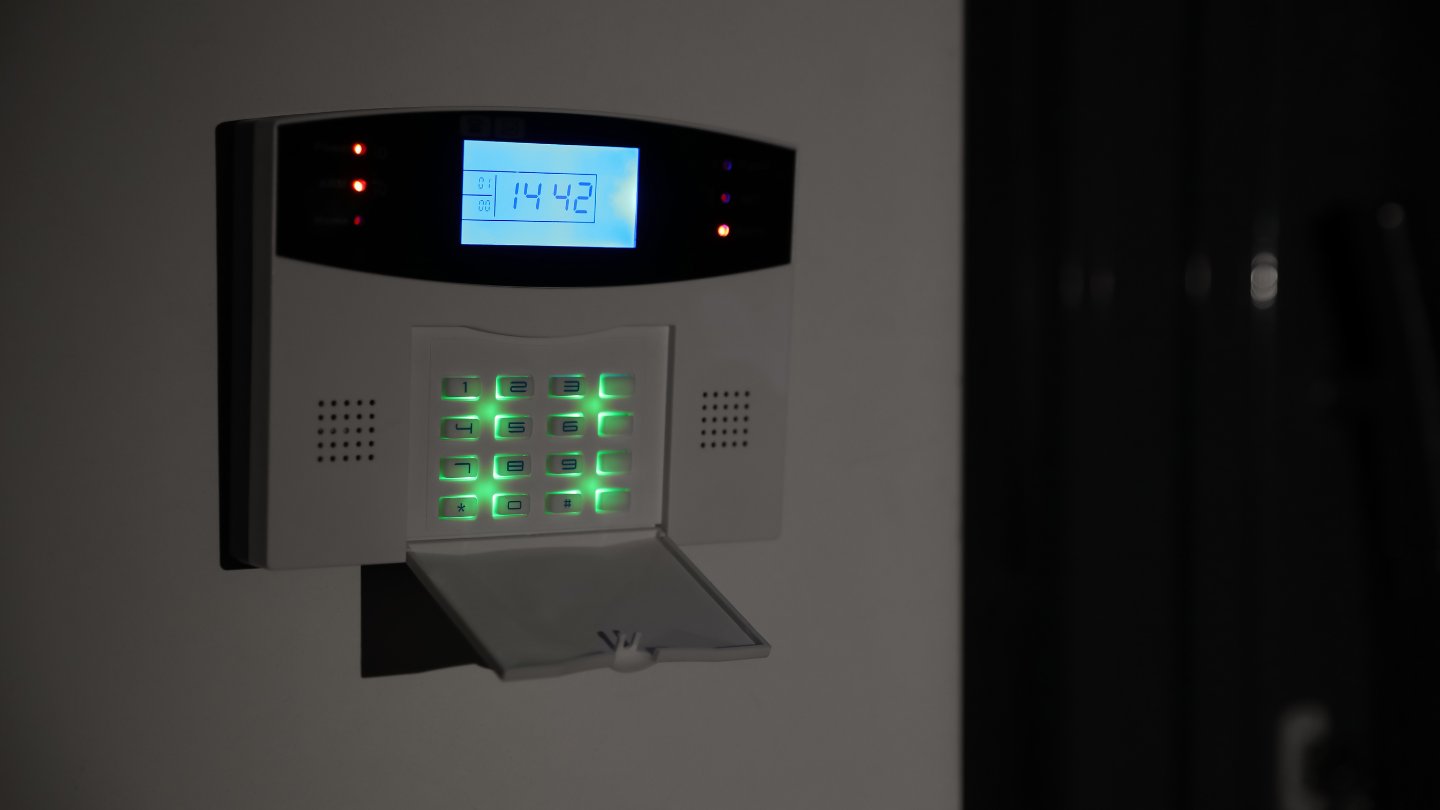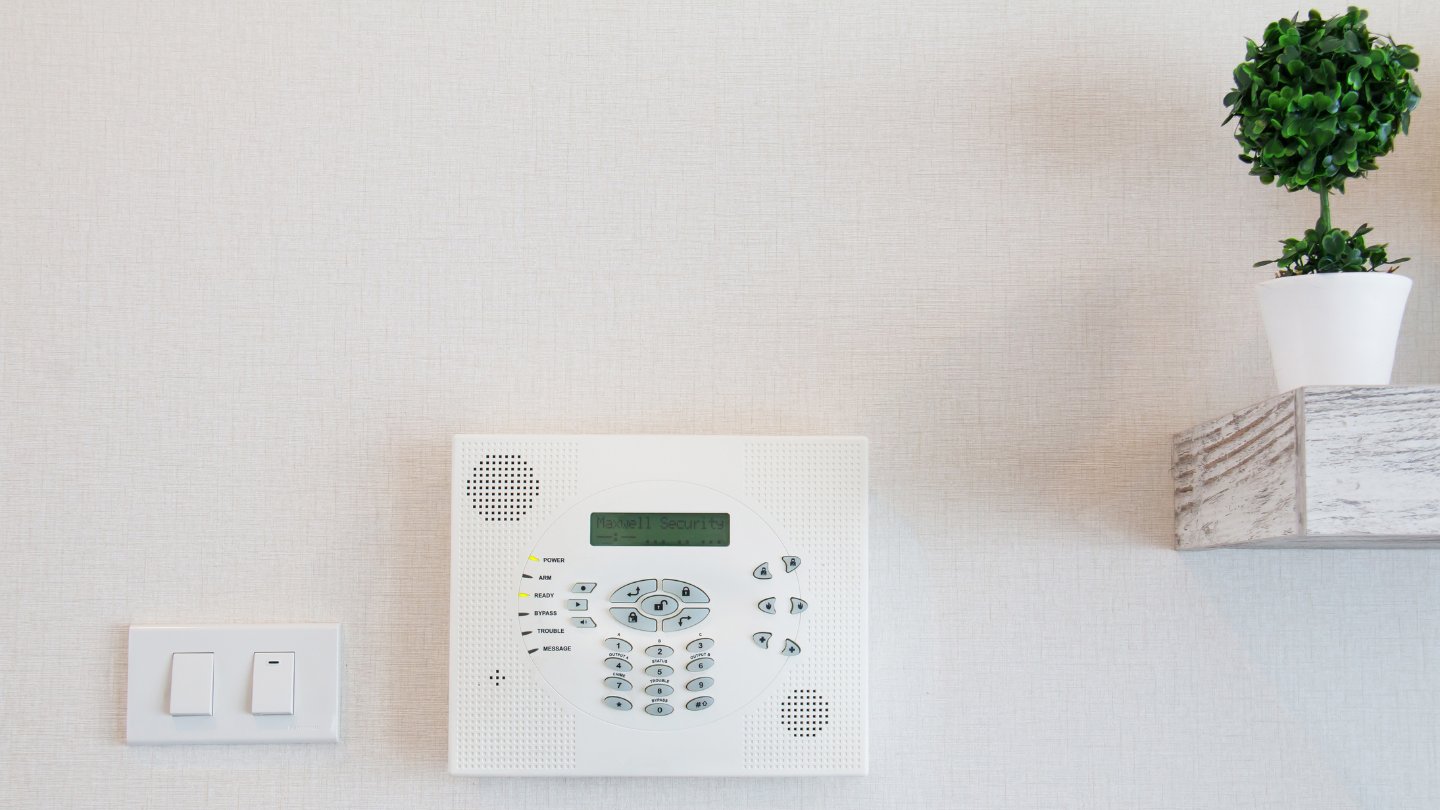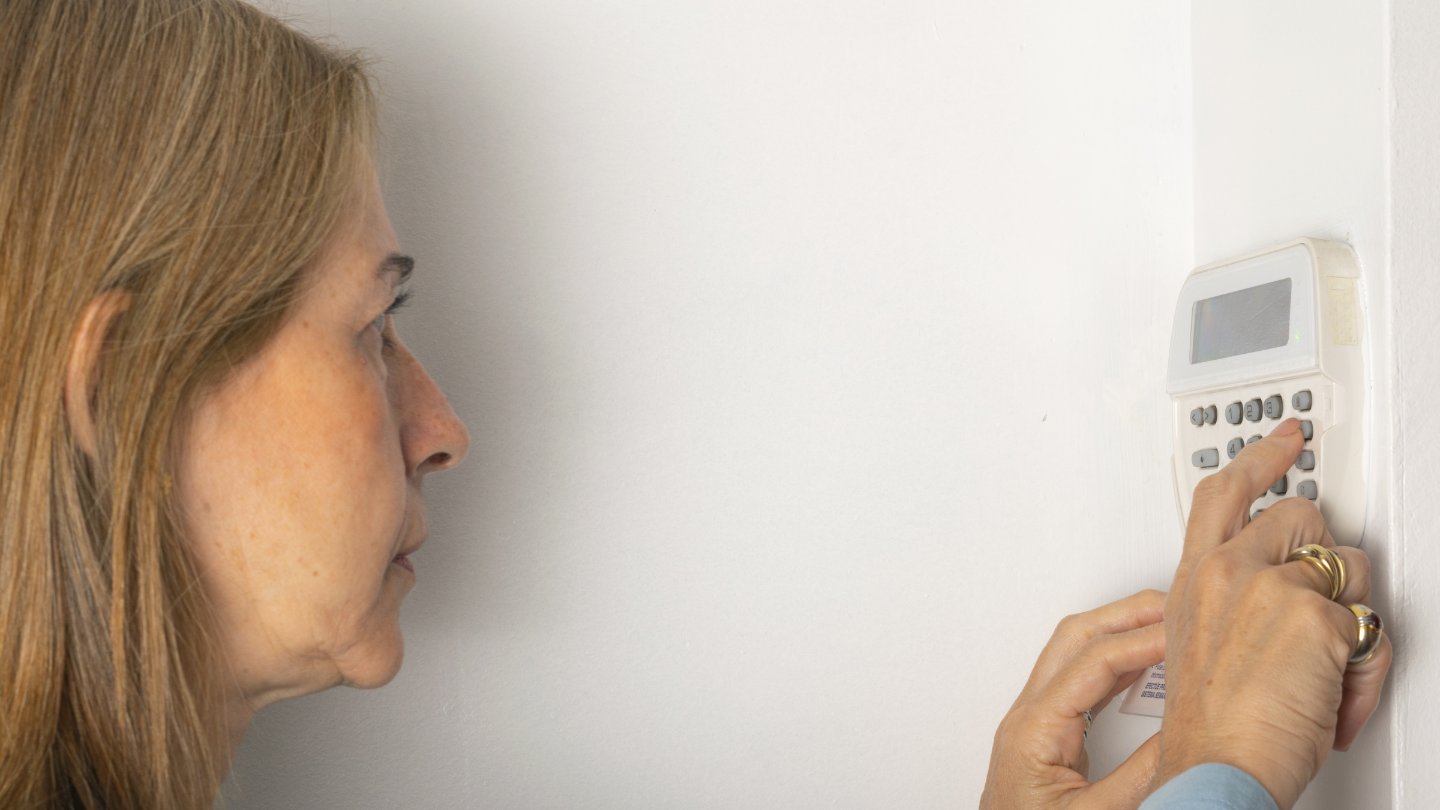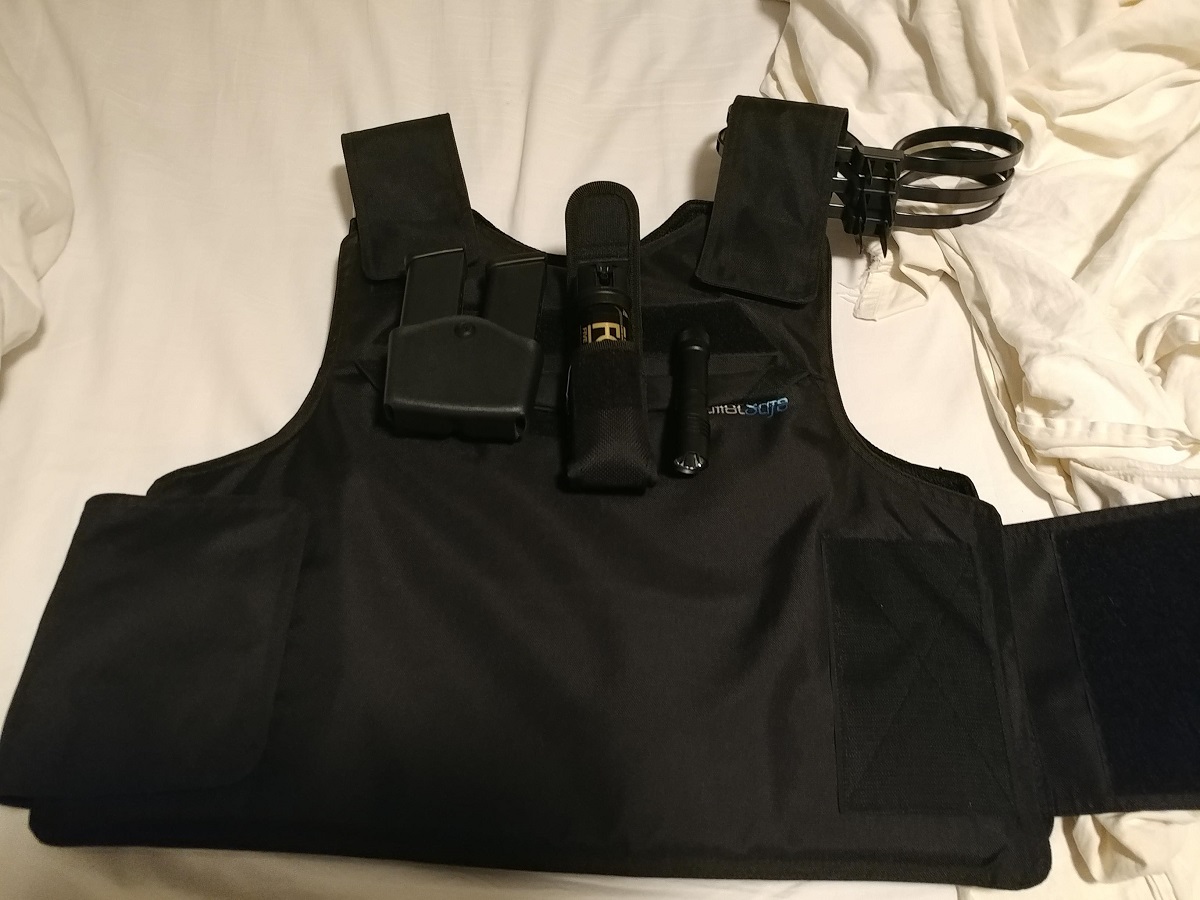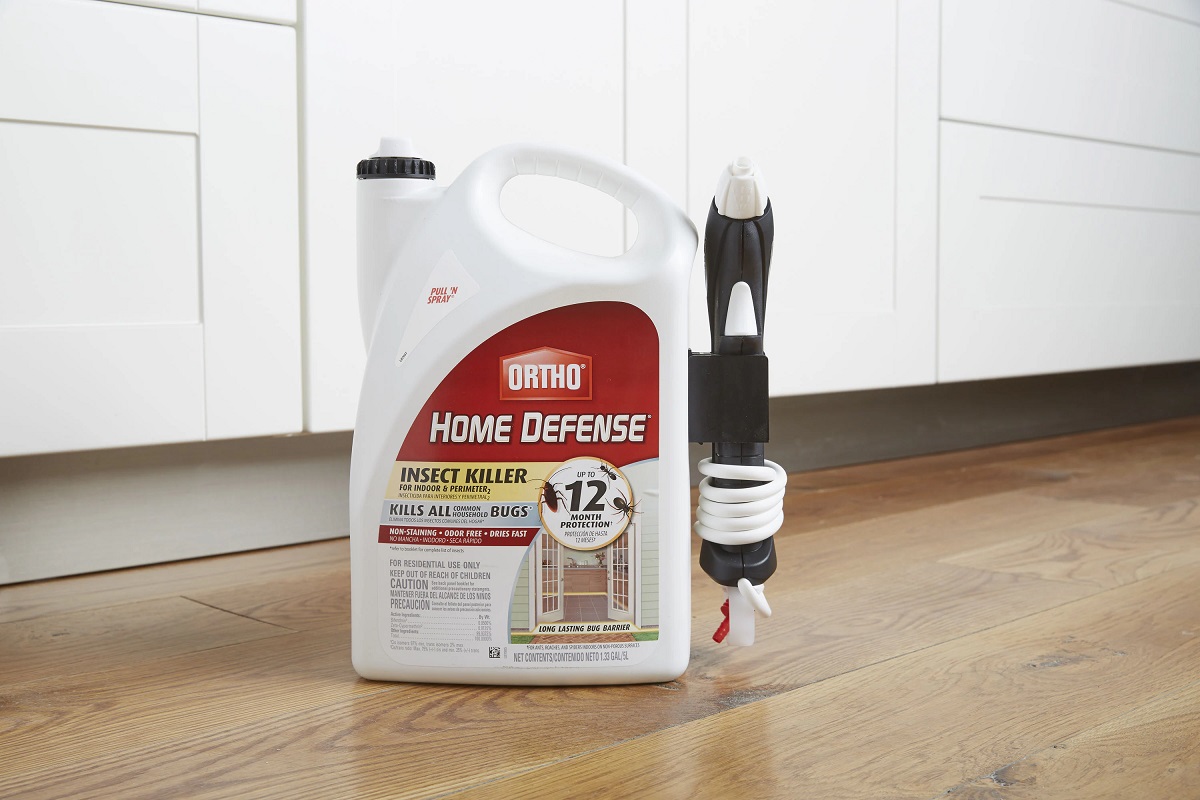Home>Home Security and Surveillance>What Is The Law Of Home Defense Against Burglars In Alabama
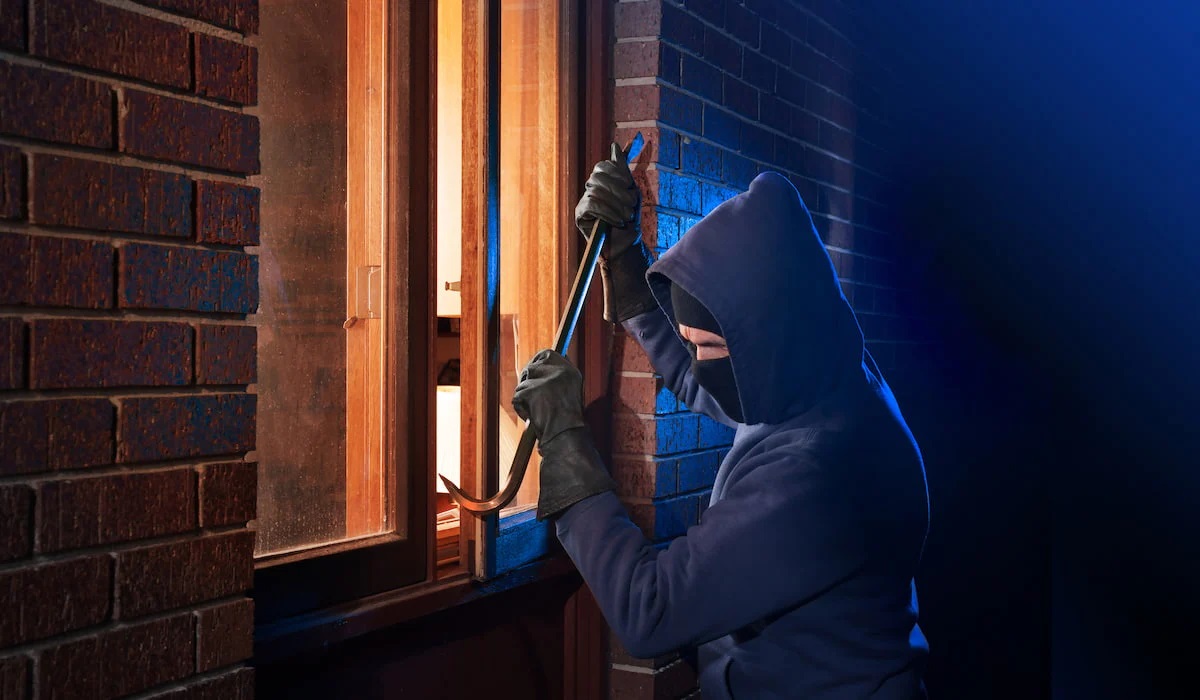

Home Security and Surveillance
What Is The Law Of Home Defense Against Burglars In Alabama
Modified: March 6, 2024
Learn about the law of home defense against burglars in Alabama and how it relates to your home security and surveillance. Protect your home and loved ones within the boundaries of the law.
(Many of the links in this article redirect to a specific reviewed product. Your purchase of these products through affiliate links helps to generate commission for Storables.com, at no extra cost. Learn more)
Introduction
When it comes to home security and surveillance, it’s important to not only focus on preventive measures but also to understand the laws that protect homeowners in the event of an intrusion or burglary. Knowing your rights and the proper course of action can make a significant difference in ensuring your safety and that of your loved ones.
This article will provide an in-depth overview of the law of home defense against burglars in Alabama. We will explore the key elements of this law, including the Castle Doctrine, Stand Your Ground law, duty to retreat, use of deadly force, and immunity from prosecution. Additionally, we will delve into the role of self-defense and shed light on important factors to consider in home defense situations.
By familiarizing yourself with these laws and understanding how they apply in specific circumstances, you can better protect your home, make informed decisions, and respond appropriately if faced with a burglary or home invasion.
Key Takeaways:
- Protecting Your Home in Alabama
Alabama homeowners have the right to defend their homes using force, including deadly force if necessary, under the Castle Doctrine and Stand Your Ground law. Understanding these laws is crucial for home defense. - Reporting Home Invasions and Burglaries
Promptly reporting home invasions or burglaries to law enforcement is essential for ensuring safety, recovering stolen property, and aiding in the pursuit of justice. It also creates a formal record of the event.
Understanding the Law of Home Defense Against Burglars in Alabama
Alabama has specific laws in place that allow homeowners to defend themselves and their property against burglars. It’s important to have a clear understanding of these laws to ensure you are within your rights when defending your home.
Key Elements of the Law:
- The Castle Doctrine: The Castle Doctrine is a legal principle that states a person can use force, including deadly force if necessary, to protect their home or any occupied vehicle from unlawful intrusion. In Alabama, the Castle Doctrine applies both within one’s residence and on the surrounding property.
- Stand Your Ground Law: Alabama has a Stand Your Ground law, which means that individuals have no duty to retreat before using force, including deadly force, if they believe it is necessary to defend themselves or others against imminent harm or serious injury. However, it is important to note that this law only applies if you are lawfully present in the location where the confrontation occurs.
- Duty to Retreat: While Alabama has a strong Stand Your Ground law, there is a limited duty to retreat in certain circumstances. If you are outside your home or vehicle and can safely retreat without risking harm to yourself or others, then you should do so before resorting to the use of force.
- Use of Deadly Force: In Alabama, the use of deadly force is justified if you reasonably believe it is necessary to prevent the commission of a forcible felony, such as burglary, robbery, or assault, and there is a threat of imminent danger of death or serious bodily harm.
- Immunity from Prosecution: Alabama law provides immunity from criminal prosecution and civil liability for individuals who use force, including deadly force, in self-defense or defense of others, as long as the actions were justified under the law.
Understanding these key elements of the law is crucial in grasping your rights and responsibilities when it comes to home defense against burglars in Alabama. However, it’s important to note that each situation is unique, and consulting with a legal professional can provide further guidance tailored to your specific circumstances.
Key Elements of the Law
When it comes to the law of home defense against burglars in Alabama, there are several key elements that homeowners need to be aware of and understand. These elements outline the rights and responsibilities individuals have in protecting their homes and loved ones from intruders. By knowing and comprehending these key elements, you can act within the boundaries of the law and ensure your safety.
- The Castle Doctrine: The Castle Doctrine is a legal principle that allows homeowners to use force, including deadly force if necessary, to protect their homes and occupied vehicles from unlawful intrusion. In Alabama, the Castle Doctrine extends to both the interior of your residence and the surrounding property. This means that if a burglar forcibly enters your home, you have the right to defend yourself and your family using reasonable force.
- Stand Your Ground Law: Alabama is a Stand Your Ground state, which means that individuals have no duty to retreat before using force in self-defense. If you reasonably believe that you or someone else is facing imminent harm or serious injury, you have the right to stand your ground and use necessary force, including deadly force, to protect yourself or others. This law applies as long as you are lawfully present in the location where the confrontation occurs.
- Duty to Retreat: While Alabama has a Stand Your Ground law, there is still a limited duty to retreat in certain situations. If you are outside your home or vehicle and can safely retreat without risk of harm, it is advisable to do so before resorting to the use of force. However, if retreating puts you or others in immediate danger, you may defend yourself with reasonable force.
- Use of Deadly Force: The use of deadly force is justified in Alabama if you reasonably believe it is necessary to prevent the commission of a forcible felony, such as burglary, robbery, or assault, and there is an imminent threat of death or serious bodily harm. It’s important to note that the use of deadly force should be a last resort, and the level of force used should be reasonable given the circumstances.
- Immunity from Prosecution: Alabama law provides immunity from criminal prosecution and civil liability for individuals who use force, including deadly force, in self-defense or defense of others. If your actions were justified under the law, you are protected from legal repercussions. However, it’s essential to remember that this immunity is not absolute and can be revoked if you are found to have acted unlawfully or in violation of other applicable laws.
By understanding these key elements of the law, homeowners in Alabama can make informed decisions when it comes to defending their homes against burglars. It is important to consult with legal professionals to ensure a comprehensive understanding of the law and to receive guidance tailored to your specific circumstances.
The Castle Doctrine
The Castle Doctrine is a legal principle that affirms a homeowner’s right to defend their home and occupied vehicle from unlawful intrusion. It recognizes that individuals have a fundamental right to feel safe and secure in their own homes. The Castle Doctrine takes its name from the saying that “an Englishman’s home is his castle,” further emphasizing the idea that your home is your protected domain.
In Alabama, the Castle Doctrine applies within the confines of your residence as well as the surrounding property. This means that if someone forcefully enters your home or occupied vehicle without your permission, you have the right to defend yourself, your family, and your property using reasonable force, including deadly force if necessary.
This legal principle is supported by the idea that your home is a place where you should be able to feel safe and secure. It recognizes the potential danger and threat posed by an intruder and allows homeowners to take the necessary steps to protect themselves and their loved ones.
However, it’s important to remember that the Castle Doctrine does not provide blanket immunity or justification for using excessive force or acting in an unreasonable manner. The use of force must be proportionate to the threat faced, and it should be based on a reasonable fear of imminent harm or serious bodily injury.
In some states, including Alabama, there is no legal obligation to retreat from your home or vehicle before using force in self-defense. This means that you have the right to stand your ground and defend yourself without first attempting to retreat.
It’s important to note that the Castle Doctrine does not give homeowners the authority to set up booby traps or engage in vigilantism. The use of force must be a response to an immediate threat and should not extend beyond what is necessary to protect yourself, your family, or your property. Additionally, the Castle Doctrine does not absolve individuals from the responsibility of acting reasonably and within the boundaries of the law.
Understanding the Castle Doctrine is vital for homeowners in Alabama. By knowing your rights and the limitations of the law, you can make informed decisions and take appropriate actions to protect yourself and your property from unlawful intrusion.
Stand Your Ground Law
The Stand Your Ground law is a legal principle that provides individuals with the right to use force, including deadly force if necessary, to defend themselves or others without having a duty to retreat. This law emphasizes the fundamental right to self-defense and recognizes that individuals have the right to protect themselves from imminent harm or serious injury.
In Alabama, the Stand Your Ground law grants individuals the right to stand their ground and use reasonable force, including deadly force, if they have a reasonable belief that such force is necessary to prevent death, serious bodily injury, or the commission of a forcible felony. This applies both inside and outside of the home or vehicle, as long as the individual is lawfully present in the location where the confrontation occurs.
The Stand Your Ground law in Alabama removes the legal requirement for individuals to first attempt to retreat or escape before resorting to the use of force. This means that if you find yourself facing a threat, you are not obligated to run away or avoid the confrontation if you believe it would put you or others in further danger.
However, it’s important to note that the Stand Your Ground law does not promote or encourage vigilantism. The use of force must be reasonable and proportionate to the threat faced. It should be based on a genuine belief that there is an immediate danger of death, serious bodily injury, or the commission of a forcible felony, and that the force used is necessary to prevent such harm.
It’s crucial to remember that the Stand Your Ground law does not provide absolute immunity from prosecution or civil liability. Law enforcement and prosecutors will still examine the evidence surrounding the incident to determine whether the use of force was justified under the law. If it is determined that the use of force was excessive or unreasonable, a person may still face legal consequences.
Understanding the Stand Your Ground law is important for individuals in Alabama to protect themselves and others in potentially dangerous situations. However, it’s always recommended to prioritize personal safety and, whenever possible, seek assistance from law enforcement to de-escalate a threatening situation before resorting to the use of force.
Read more: What Is The Law On Security Cameras
Duty to Retreat
In Alabama, the Stand Your Ground law provides individuals with the right to use force, including deadly force, to defend themselves without having a duty to retreat. However, it’s essential to understand that there are still circumstances in which a duty to retreat may exist.
While the Stand Your Ground law allows individuals to stand their ground and use force when there is a reasonable belief of imminent harm or serious bodily injury, retreating may be required if it is safe to do so without facing further harm. This concept is known as the duty to retreat.
Under the duty to retreat, individuals have an obligation to make a reasonable attempt to escape or avoid a confrontation if they can do so without risking harm to themselves or others. If there is a clear and safe path to retreat from the situation, it is recommended to take it before resorting to the use of force.
However, the duty to retreat is “limited” in Alabama. This means that individuals are not obligated to retreat if they are in their own home or occupied vehicle, or if they are lawfully present in a location where the confrontation occurs. In these circumstances, standing your ground is typically permissible under the Stand Your Ground law.
It’s important to keep in mind that the duty to retreat may still apply when you are outside your home or vehicle and there is a safe opportunity to avoid or de-escalate the situation. If you have the ability to safely retreat without exposing yourself or others to harm, it is generally recommended to do so before resorting to the use of force.
Ultimately, the duty to retreat is a nuanced concept in Alabama law. The circumstances of the situation, the availability of safe retreat, and the reasonableness of your actions will be taken into consideration when determining whether you were justified in using force.
While the Stand Your Ground law does not impose a strict duty to retreat, it’s important to assess each situation carefully and consider all available options before deciding to defend yourself. If a safe retreat is possible and can avoid unnecessary violence, it is generally the preferred course of action.
Use of Deadly Force
In Alabama, the use of deadly force is justified in certain circumstances when defending oneself against an imminent threat of death, serious bodily injury, or the commission of a forcible felony. However, it’s important to understand the conditions and limitations surrounding the use of deadly force.
Deadly force refers to force that can reasonably be expected to cause death or serious bodily harm. It includes using firearms, knives, or any other means that have the potential to cause fatal injuries. The use of deadly force should only be employed as a last resort when there is no reasonable alternative to protect yourself or others.
Under Alabama law, the use of deadly force is justified if you reasonably believe it is necessary to:
- Defend yourself or another person against the imminent threat of death or serious bodily injury;
- Prevent the commission of a forcible felony, such as burglary, robbery, or assault, and you believe there is an imminent risk of death or serious bodily harm resulting from the felony.
It is essential to note that the use of deadly force should be based on a reasonable belief. This means that a person in your position, with the same information and circumstances, would likewise believe that their life or the life of another is in imminent danger.
When considering the use of deadly force, it’s crucial to act in a manner that is proportionate to the threat faced. You must also ensure that you are not the initial aggressor in the situation. Additionally, if there is an opportunity to safely retreat or avoid the confrontation without increasing the risk to yourself or others, it is generally advisable to do so.
While Alabama does not have a duty to retreat, it’s important to exercise sound judgment and only use deadly force when there is a genuine threat that cannot be resolved through other means. The decision to use deadly force should be made under the belief that it is necessary to prevent imminent harm, and it should be accompanied by a genuine fear of death or severe bodily injury.
Understanding the proper use of deadly force is crucial to ensure your actions align with the law. It is always recommended to consult with legal professionals to obtain specific guidance and ensure a comprehensive understanding of the law as it pertains to self-defense and the use of deadly force in Alabama.
In Alabama, the law allows individuals to use deadly force to defend their home against a burglar if they reasonably believe it is necessary to prevent the burglar from committing a violent crime. Always consult with a legal professional for specific advice.
Immunity from Prosecution
In Alabama, individuals who use force, including deadly force, in self-defense or defense of others may be granted immunity from criminal prosecution and civil liability under certain circumstances. This immunity serves as a legal protection for individuals who act within the boundaries of the law to protect themselves or others from imminent harm or serious bodily injury.
The immunity from prosecution is established under Alabama’s self-defense laws and provides a shield against criminal charges and civil lawsuits. Immunity can be granted if the use of force is justified under the law and meets specific criteria.
To qualify for immunity from prosecution:
- The individual must be lawfully present in the location where the confrontation occurs.
- They must have a genuine and reasonable belief that the use of force, including deadly force, is necessary to prevent death, serious bodily injury, or the commission of a forcible felony.
- The use of force must be based on a reasonable fear of imminent harm, and the level of force used should be proportionate to the threat faced.
- The individual must not be engaged in any illegal activity or be the initial aggressor in the situation.
If these conditions are met, the person defending themselves or others may be entitled to immunity from both criminal prosecution and civil liability. This means that they cannot be charged with a crime or held financially responsible for injuries inflicted on the attacker in the process of self-defense.
It’s important to note that the immunity from prosecution does not automatically absolve an individual from any legal consequences. Law enforcement and prosecutors will thoroughly investigate the circumstances surrounding the incident before determining whether immunity applies. It is possible for the person claiming self-defense to have their immunity challenged if it is found that their actions were unreasonable or violated other laws.
Obtaining immunity from prosecution typically requires a legal process, including presenting evidence and arguments to convince the court that self-defense was justified. It is crucial to consult with legal professionals who have knowledge and experience in self-defense cases to navigate the complexities of the law and maximize the chances of receiving immunity.
Understanding the concept of immunity from prosecution is important for individuals in Alabama who may find themselves in situations where they need to defend themselves. However, it’s always advisable to prioritize personal safety, avoid confrontations if possible, and seek legal counsel to ensure a comprehensive understanding of the law as it applies to self-defense.
The Role of Self-Defense
Self-defense is a fundamental right that individuals have to protect themselves from harm or the imminent threat of harm. In the context of home defense against burglars in Alabama, self-defense plays a crucial role in empowering homeowners to take necessary actions to safeguard their lives, the lives of their loved ones, and their property.
Self-defense allows individuals to use reasonable force, and in some cases, deadly force, to counteract an imminent threat or act of violence. When faced with a burglary or home invasion, the ability to assert your right to self-defense is an important aspect of protecting yourself and your home.
By understanding the laws surrounding self-defense, including the Castle Doctrine and the Stand Your Ground law, homeowners in Alabama can make informed decisions when faced with an intruder. It’s important to be familiar with the criteria for justifiable self-defense and the limitations placed on the use of force to ensure that your actions are within the boundaries of the law.
The primary elements of self-defense in the context of home defense against burglars in Alabama include:
- Reasonable Belief: You must have a genuine and reasonable belief that you or others are facing an imminent threat of death or serious bodily injury.
- Proportionate Response: The level of force used in self-defense should be proportionate to the threat faced. It is crucial to respond with an appropriate and reasonable amount of force, taking into consideration the circumstances and the threat posed by the intruder.
- No Duty to Retreat: In Alabama, there is generally no legal obligation to retreat before using force in self-defense. This means that individuals have the right to stand their ground and defend themselves within their home or occupied vehicle under the Castle Doctrine.
- Lawful Presence: Self-defense is generally protected when you are lawfully present in the location where the confrontation occurs. However, engaging in illegal activities or being the initial aggressor can compromise your claim of self-defense.
It’s important to note that self-defense is an individual’s right but also a responsibility. While the law grants the ability to defend yourself, it is crucial to exercise good judgment, prioritize personal safety, and avoid unnecessary escalation of violence whenever possible.
Consulting with legal professionals and familiarizing yourself with state laws governing self-defense can provide valuable guidance and help ensure that you understand your rights and responsibilities.
In summary, self-defense plays a critical role in protecting homeowners in Alabama from harm during a burglary or home invasion. By having a clear understanding of self-defense laws, individuals can take appropriate action to defend themselves and their property while staying within the boundaries of the law.
Read more: What Is Local Burglar Alarm?
Factors to Consider in Home Defense Situations
When faced with a home defense situation, it is essential to carefully consider several factors before taking action. Making informed decisions can help ensure your safety, the safety of your loved ones, and the effective defense of your home against burglars. Here are some key factors to consider:
- Assessment of the Threat: Evaluate the nature and severity of the threat posed by the intruder. Determine whether they are armed, their intent, and the level of danger they present. This assessment will help you determine the appropriate level of response.
- Prioritize Personal Safety: Your safety and the safety of your loved ones should always be the top priority. Consider whether it is safer to retreat to a secure location within your home or to evacuate if possible.
- Communication: If you live with others, establish a clear communication plan to ensure everyone is aware of the situation. Use non-verbal cues or pre-determined signals to avoid revealing your position to the intruder.
- Secure Your Location: Lock doors, windows, and any other access points to prevent further intrusion. If possible, seek refuge in a safe room or an area where you can barricade yourself and others until help arrives.
- Call for Help: Contact emergency services as soon as it is safe to do so. Provide them with accurate information about the situation, your location, and any pertinent details that can assist them in responding appropriately.
- Use of Force: It is crucial to understand the laws governing self-defense in your jurisdiction, including the permissible use of force. Consider whether the use of force, including deadly force, is necessary and justifiable given the circumstances.
- Document the Incident: If possible, make mental or written notes about the details of the incident, including the intruder’s appearance, actions, and any threats made. This information can be important for law enforcement and any legal proceedings that may follow.
- Cooperate with Authorities: Once law enforcement arrives, follow their instructions and cooperate fully. Provide any necessary information and be prepared to articulate your actions in self-defense when recounting the incident.
It’s important to remember that each home defense situation is unique, and there is no one-size-fits-all approach. The best course of action may vary depending on the circumstances. Therefore, it is advisable to seek professional legal guidance and receive appropriate training in personal defense and home security to enhance your preparedness.
By considering these factors and having a comprehensive plan in place, you can be better equipped to respond effectively and protect yourself and your home during a burglary or home invasion.
How Burglaries Are Defined
Burglaries are criminal offenses that involve the unlawful entry into a structure, typically with the intent to commit a crime, such as theft or vandalism. Understanding the definition of burglary is essential for homeowners to identify and respond appropriately to potential intrusions and to navigate the legal consequences that may arise from such incidents.
In Alabama, the legal definition of burglary is outlined in the Alabama Criminal Code. According to the law, a person commits burglary if they:
- Knowingly enter or remain unlawfully in a building or occupied dwelling; and
- Do so with the intent to commit a felony or theft inside.
It’s important to note that the intent to commit a felony or theft is a critical element in defining burglary. The act of simply entering a structure unlawfully does not constitute a burglary if there is no accompanying intent to commit a crime inside.
In Alabama, burglary is generally classified as either “first-degree” or “second-degree” burglary, depending on certain factors such as the location of the burglary or the presence of firearms or dangerous weapons during the offense.
First-degree burglary is considered a more serious offense and involves unlawfully entering or remaining in an occupied dwelling with the intent to commit a crime inside. This offense carries stiffer penalties compared to second-degree burglary.
Second-degree burglary encompasses other types of structures, such as businesses, offices, or unoccupied dwellings, where an individual unlawfully enters or remains with the intent to commit a crime inside.
It’s worth mentioning that the act of burglary can escalate the severity of the situation, as it involves not only trespassing but also the intention to commit a crime. Therefore, homeowners should be aware of the potential risks and take appropriate measures to protect their homes and property from burglary.
In the event that a burglary occurs, it is important to prioritize personal safety and contact law enforcement immediately. Avoid confronting the intruder directly, as this can potentially escalate the situation and put yourself at risk. Instead, focus on securing your safety and providing law enforcement with accurate information about the incident.
Understanding the definition of burglary and the potential consequences associated with it allows homeowners to better recognize and respond to potential intrusions. By implementing appropriate security measures and promptly notifying authorities, homeowners can help protect their homes and assist in the legal process should a burglary occur.
Reporting a Home Invasion or Burglary
Experiencing a home invasion or burglary can be a distressing and alarming situation. It is crucial to prioritize personal safety and the safety of others in such incidents. Once you have taken the necessary steps to ensure your well-being, promptly reporting the home invasion or burglary to the appropriate authorities is essential for several reasons.
Here are the steps to follow when reporting a home invasion or burglary:
- Ensure Safety: First and foremost, ensure that you and your loved ones are safe. If you are still in immediate danger, find a secure location, or evacuate to a safe area before making the report.
- Contact Emergency Services: Dial the emergency number, typically 911, to reach law enforcement. Clearly communicate that you are reporting a home invasion or burglary and provide your location. Remain calm and provide essential details about the incident.
- Provide Accurate Information: Be prepared to provide as much detail as possible. This includes a description of any intruders, their actions or threats, and any other relevant information that can assist law enforcement in responding effectively.
- Preserve the Crime Scene: It is important not to touch or disturb any potential evidence at the crime scene. Protecting the integrity of the scene can aid law enforcement in their investigation and increase the chances of apprehending the intruders.
- File a Police Report: After law enforcement arrives, cooperate with their instructions and provide a detailed account of the incident. This information will be used to create an official police report, which is important for insurance claims and any legal proceedings that may follow.
- Document Damages and Missing Items: Take inventory of any damages caused during the home invasion or burglary, and make a list of missing items. This documentation will be valuable for insurance claims.
- Follow Up with Investigators: If there are any updates or additional information related to the incident, promptly inform the investigators assigned to your case. Cooperate and provide any further assistance as needed.
By reporting a home invasion or burglary, you not only enable law enforcement to take appropriate actions and investigate the incident but also create a formal record of the event. This documentation can be vital for insurance purposes, as well as for seeking any available support services for victims of crime.
Remember to take preventative measures to secure your home and minimize the risk of future incidents. This may involve enhancing your home security system, installing surveillance cameras, reinforcing doors and windows, or seeking professional advice on improving your home’s safety.
Reporting a home invasion or burglary is an important step in ensuring your safety, recovering stolen property, and assisting in the pursuit of justice. By promptly contacting the authorities and providing accurate information, you contribute to creating a safer community and potentially preventing further crimes.
Summary and Conclusion
Understanding the law of home defense against burglars in Alabama is essential for homeowners to protect themselves, their loved ones, and their property. By familiarizing yourself with the key elements of the law, such as the Castle Doctrine, Stand Your Ground law, duty to retreat, use of deadly force, and immunity from prosecution, you can make informed decisions and respond appropriately in home defense situations.
The Castle Doctrine grants individuals the right to defend their home and occupied vehicle from unlawful intrusion, allowing the use of force, including deadly force if necessary. The Stand Your Ground law eliminates the duty to retreat in certain circumstances, enabling individuals to defend themselves with reasonable force. However, it is crucial to consider the duty to retreat when safe options exist. The use of deadly force is justified in Alabama when there is a reasonable belief that it is necessary to prevent death, serious bodily injury, or the commission of a forcible felony.
Immunity from prosecution protects individuals who use force, including deadly force, in self-defense or defense of others, as long as their actions are justified under the law. However, this immunity is not absolute and must be established through the legal process.
When considering home defense against burglars, it is important to assess factors such as the threat level, personal safety, communication with others in the home, securing your location, and contacting emergency services. Promptly reporting a home invasion or burglary to the authorities is crucial for both your safety and any legal proceedings that may follow.
To prevent burglaries, it is advisable to implement effective home security measures such as strong locks, security systems, surveillance cameras, and adequate lighting. Being proactive and taking steps to secure your home can significantly reduce the likelihood of an intruder gaining access.
In conclusion, homeowners in Alabama should be well-versed in the laws of home defense against burglars. By understanding the legal principles, rights, and responsibilities outlined in the law, individuals can protect themselves and their property while staying within the boundaries of the law. Taking steps to enhance home security and promptly reporting incidents to law enforcement can contribute to a safer living environment for all.
Frequently Asked Questions about What Is The Law Of Home Defense Against Burglars In Alabama
Was this page helpful?
At Storables.com, we guarantee accurate and reliable information. Our content, validated by Expert Board Contributors, is crafted following stringent Editorial Policies. We're committed to providing you with well-researched, expert-backed insights for all your informational needs.
